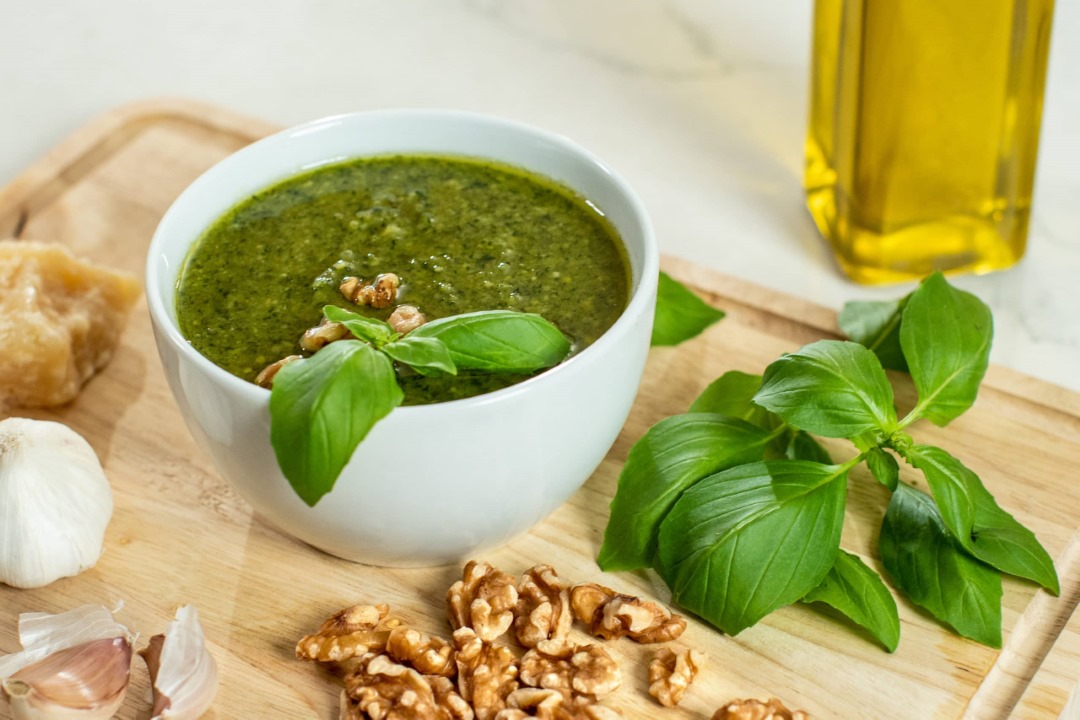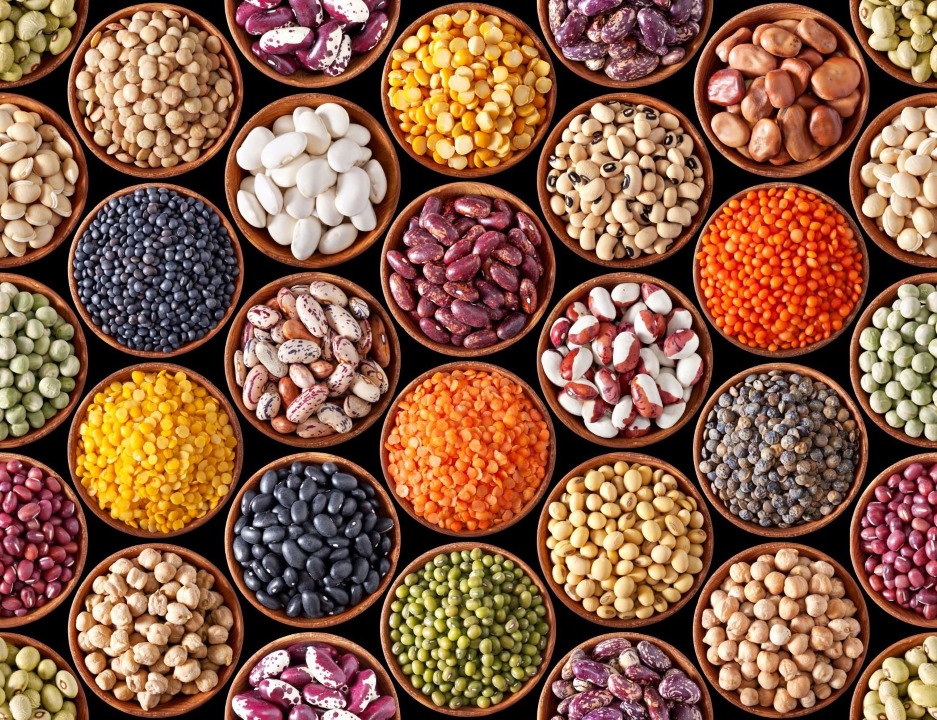Navigating the grocery store can feel like a battle—so many choices, yet so much uncertainty. What’s truly good for your body? How do you balance flavor, nutrition, and simplicity without spending hours reading every label? Even when you have a general idea of what counts as “healthy,” it can be hard to figure out what should actually make it onto your plate daily. The good news? There’s a whole world of nutritious, satisfying foods out there—and many of them are surprisingly delicious.
To make things easier, we’ve gathered expert recommendations from registered dietitians and nutritionists who not only talk the talk but walk the walk. These are the foods they eat themselves and encourage their clients to enjoy regularly. If they swear by them, you might want to give them a spot in your daily meals too.
Here are 40 of the healthiest foods you can enjoy every day—backed by science and expert advice, and curated for variety, accessibility, and real nutritional value.
1. Olives
These little flavor-packed fruits do more than just dress up a charcuterie board. Olives are high in monounsaturated fats, which promote heart health by lowering bad cholesterol and raising good cholesterol. They also contain vitamins A and E, which help defend the skin against oxidative stress and environmental damage. Add them to salads, pasta, or eat them as a snack—you’ll get antioxidants and flavor in one hit.
2. Cucumbers
If hydration had a mascot, cucumbers would be it. Composed of about 95% water, cucumbers help keep your body hydrated and support healthy digestion. They’re crisp, refreshing, and low in calories, making them perfect for snacks, salads, or even infused water. Nutritionally, they also offer small amounts of vitamin K, potassium, and antioxidants.
3. Chia Seeds
Don’t let their size fool you—chia seeds are one of the most omega-3-rich plant foods available. They’re also loaded with fiber, which supports digestive health and keeps you fuller longer. Mix them into yogurt, sprinkle them over salads, or soak them overnight to make a satisfying chia pudding.
4. Jackfruit
Once an exotic oddity, jackfruit is now a go-to for vegetarians and vegans looking for a meat alternative. Its fibrous texture makes it ideal for tacos or pulled “pork” sandwiches. On the nutrition side, jackfruit contains vitamin B6, niacin, and folate, which help convert food into energy and support brain function.
5. Avocados
This creamy green fruit is beloved for a reason. Packed with heart-healthy fats, vitamin C, and fiber, avocados are as versatile as they are nutritious. Spread them on toast, blend into smoothies, or just enjoy them sliced with a pinch of sea salt. Bonus: they contain more potassium than bananas.
6. Greek Yogurt
Rich in probiotics, protein, and calcium, Greek yogurt is a daily essential for many nutritionists. Its live cultures support gut health, while the protein helps maintain muscle and energy levels. For vegetarians, it’s an especially valuable source of protein and bone-strengthening nutrients.
7. Swiss Chard
Swiss chard is often overshadowed by spinach and kale, but it shouldn’t be. It’s loaded with vitamin K, crucial for bone health, and offers a hefty dose of antioxidants. Just one cup provides over three times your daily recommended intake of vitamin K, along with iron, magnesium, and fiber.
8. Walnut Pesto
A rich and flavorful way to get your greens and healthy fats, walnut pesto blends herbs, olive oil, Parmesan, and walnuts into a delicious nutrient-dense spread. Walnuts bring in omega-3s, while herbs like basil are antioxidant powerhouses. Use it on sandwiches, pasta, or roasted veggies.
9. Apple Cider Vinegar
Apple cider vinegar has gained traction for good reason. It helps maintain a healthy pH balance, supports digestion, and has even been linked to improved blood sugar regulation. Use it in dressings, marinades, or mix a teaspoon into warm water as a tonic—just be sure to go easy to protect your teeth and stomach lining.
10. Watermelon
More than just a summer favorite, watermelon is a hydration hero. It’s packed with lycopene, a powerful antioxidant that helps protect your skin and support cardiovascular health. It also contains L-citrulline, which may boost circulation and reduce muscle soreness.
11. Amaranth
Often mistaken for a grain, amaranth is actually a seed—making it naturally gluten-free and ideal for those with dietary sensitivities. It's surprisingly rich in both protein and calcium, offering benefits for bone strength and muscle maintenance. Whether cooked like rice or used in baked dishes, amaranth has a slightly nutty flavor and a soft texture that fits easily into daily meals.
12. Ginger
Ginger has long been treasured in traditional medicine, and science backs up many of its healing properties. It contains gingerol, a bioactive compound known for its anti-inflammatory and digestive-supporting effects. Whether steeped in tea, added to stir-fries, or blended into smoothies, ginger can ease nausea, relieve bloating, and may even reduce muscle pain.
13. Quinoa
This ancient seed is a complete protein, meaning it contains all nine essential amino acids—a rare trait among plant-based foods. High in fiber, magnesium, and iron, quinoa is as nutrient-dense as it is versatile. Use it in place of rice, as a salad base, or even mix it into baked goods for a nutritional punch.
14. Sweet Potatoes
Naturally sweet and rich in beta-carotene, sweet potatoes support eye health, skin regeneration, and immunity. They also provide a healthy dose of fiber, helping to maintain steady blood sugar levels. Enjoy them roasted, mashed, baked, or even sliced and air-fried as a healthier alternative to fries.
15. Hemp Seeds
Small but mighty, hemp seeds are loaded with complete plant-based protein, fiber, and omega-3 fatty acids. They support heart and brain health while also helping reduce inflammation. Sprinkle them into cereal, blend into smoothies, or use as a topping for salads and soups.
16. Goji Berries
These vibrant red berries are more than just eye candy—they're rich in antioxidants, particularly zeaxanthin, which supports vision and skin health. Some studies suggest goji berries may aid weight management and immune function. Add them to trail mix, yogurt, or your favorite oatmeal for a sweet-tart boost.
17. Kale
Kale has earned its superfood status. Packed with vitamin K, vitamin C, calcium, and fiber, it promotes bone health, immune support, and digestive balance. Plus, its phytonutrients help your cells communicate better, enhancing the body’s ability to fight off disease. Enjoy it raw, steamed, or baked into chips.
18. Brussels Sprouts
Don’t let their small size fool you—Brussels sprouts are nutritional giants. They’re rich in vitamins A and C, both of which support eye health and immunity. They also contain lutein and zeaxanthin, compounds linked to lower risk of macular degeneration. Roast them until crispy for a sweet, nutty treat.
19. Wild Salmon
Wild-caught salmon is prized for its omega-3 fatty acids, which combat inflammation and promote cardiovascular health. It also delivers protein, vitamin D, and antioxidants like astaxanthin, known for supporting skin elasticity and reducing signs of aging. Grill, bake, or sear it with herbs and lemon.
20. Nut-Based Cream Cheese
For those steering clear of dairy, nut-based cream cheeses—often made with almonds or cashews—are a rich, flavorful alternative. They provide healthy fats, vitamin E, and a creamy texture without additives or preservatives. Use them as spreads, dips, or even a base for sauces.
21. Dandelion Greens
Often overlooked, dandelion greens are extremely nutrient-dense, offering more vitamins and minerals per calorie than most other leafy greens. They’re particularly high in vitamins A and C, and have gentle detoxifying properties that support liver function. Toss them into salads or sauté with garlic for a slightly bitter kick.
22. Chickpea Pasta
Brands like Banza have made pasta better by using chickpeas instead of refined wheat. This ups the protein and fiber content significantly, while reducing carbs. Chickpea pasta is also gluten-free and surprisingly filling—perfect for those watching their weight or blood sugar levels.
23. Coconut Oil
Though high in saturated fat, coconut oil has unique properties thanks to its medium-chain triglycerides (MCTs). These fats are metabolized quickly and may support brain health, energy, and immune function. A little goes a long way—use it for cooking, baking, or adding richness to smoothies.
24. Broccoli
This cruciferous veggie deserves regular appearances on your plate. Rich in vitamin K, calcium, and folate, broccoli supports bone density, hormonal balance, and prenatal health. It also contains sulforaphane, a compound shown to aid detoxification and reduce inflammation.
25. Butternut Squash
Butternut squash is loaded with vitamins A, C, and E, making it a skin- and eye-friendly option that also supports immune health. Its natural sweetness makes it a favorite in soups, curries, and roasted dishes. It’s filling, fiber-rich, and full of seasonal flavor.
26. Tea
Tea is one of the simplest daily rituals that packs a serious health punch. Rich in polyphenols—plant compounds with antioxidant and anti-inflammatory effects—tea can support heart health, brain function, bone density, and even oral hygiene. Green, black, or white, all teas have their benefits—just skip the sugar and cream to keep things clean. Want more antioxidants? Try using brewed tea in smoothies or cooking liquids.
27. Hummus
Made primarily from chickpeas and tahini, hummus is a creamy dip that delivers plant-based protein, healthy fats, and a range of vitamins and minerals. Thanks to the iron from chickpeas and vitamin C from lemon, it’s also highly bioavailable, meaning your body can absorb the nutrients easily. Use it as a dip for veggies, a spread on wraps, or even a pasta sauce base.
28. Blueberries
These small, sweet berries are incredibly rich in antioxidants, especially vitamin C and anthocyanins, which fight free radicals and support heart health. Blueberries are also a good source of fiber, promoting digestive health and blood sugar stability. Eat them fresh, frozen, or blended into smoothies or oatmeal.
29. Leafy Greens
Greens like spinach, collards, and arugula are packed with folate, beta-carotene, lutein, and vitamin K—all crucial for cellular health, vision, and cardiovascular protection. A daily serving can also slow cognitive decline, according to recent studies. Use them as the base of your meals, toss into stir-fries, or blend into shakes for an easy nutrient upgrade.
30. Nuts
Whether it’s almonds, pistachios, cashews, or walnuts, nuts are a go-to for healthy fats, fiber, and plant-based protein. Walnuts, in particular, are rich in omega-3s, while almonds are high in vitamin E. Regular nut consumption is linked to better heart health, cholesterol control, and even reduced risk of type 2 diabetes.
31. Flaxseeds
These tiny seeds are an excellent source of lignans, fiber, and plant-based omega-3 fatty acids. Flaxseeds can help regulate hormone levels, blood sugar, and cholesterol, while also improving digestion. To maximize absorption, use ground flaxseed in oatmeal, smoothies, or baked goods.
32. Beets
Beets contain betalains, potent antioxidants that support detoxification, particularly through the liver. They also contain nitrates, which may enhance blood flow and improve athletic performance. Their bold color and earthy flavor work well in salads, juices, or roasted as a side dish.
33. Garlic
More than just a seasoning, garlic contains sulfur compounds like allicin that support immune function, reduce inflammation, and promote heart health. It’s also a natural antimicrobial and antioxidant source. Crush fresh garlic to activate these compounds and add it to sautés, soups, or dressings.
34. Olive Oil
A Mediterranean diet staple, extra virgin olive oil is rich in polyphenols and monounsaturated fats that reduce inflammation and support cardiovascular health. Studies show that even a tablespoon a day can help reduce markers like C-reactive protein. Use it as your go-to cooking oil or drizzle it on vegetables and grains.
35. Beans
Beans are a nutritional powerhouse: high in fiber, protein, iron, and complex carbs. They promote blood sugar stability, heart health, and digestive balance, all while being budget-friendly and filling. Toss them in salads, soups, or grain bowls.
36. Eggs
Whole eggs are rich in choline, a nutrient critical for brain health and metabolism. They’re also a great source of complete protein, vitamin D, and selenium. Concerns about cholesterol have been largely debunked in recent years, making eggs a safe and nutritious daily option.
37. High-Fiber Cereal
Cereals made with bran or whole grains are a convenient way to boost daily fiber intake, which helps regulate digestion, blood sugar, and satiety. Mix high-fiber cereal with yogurt, smoothies, or fruit for a complete breakfast or snack.
38. Nut and Seed Butters
From peanut and almond to sunflower seed and cashew, these spreads are rich in healthy fats, plant protein, and micronutrients like magnesium and iron. Choose natural varieties with no added sugar or hydrogenated oils, and use them as dips, sandwich spreads, or smoothie thickeners.
39. Oatmeal
Oats contain beta-glucan, a type of soluble fiber proven to lower bad cholesterol (LDL) and stabilize blood sugar. Oatmeal also provides long-lasting energy and supports digestive health. Choose steel-cut or old-fashioned oats and top with fruit, seeds, or nut butter for a balanced breakfast.
40. Water
It might be the most overlooked “nutrient” of all, but water is essential for nearly every function in your body. It aids in digestion, circulation, temperature regulation, and nutrient absorption. Many people confuse thirst for hunger, so staying hydrated can also help manage cravings. Aim for at least 2 to 3 liters a day, and enhance it with fruit slices or herbs if you need a flavor boost.
By integrating these foods into your everyday routine, you’re not only nourishing your body—you’re building a foundation for long-term wellness. Whether you’re revamping your eating habits or just looking for new healthy staples, this list gives you plenty to explore.
















